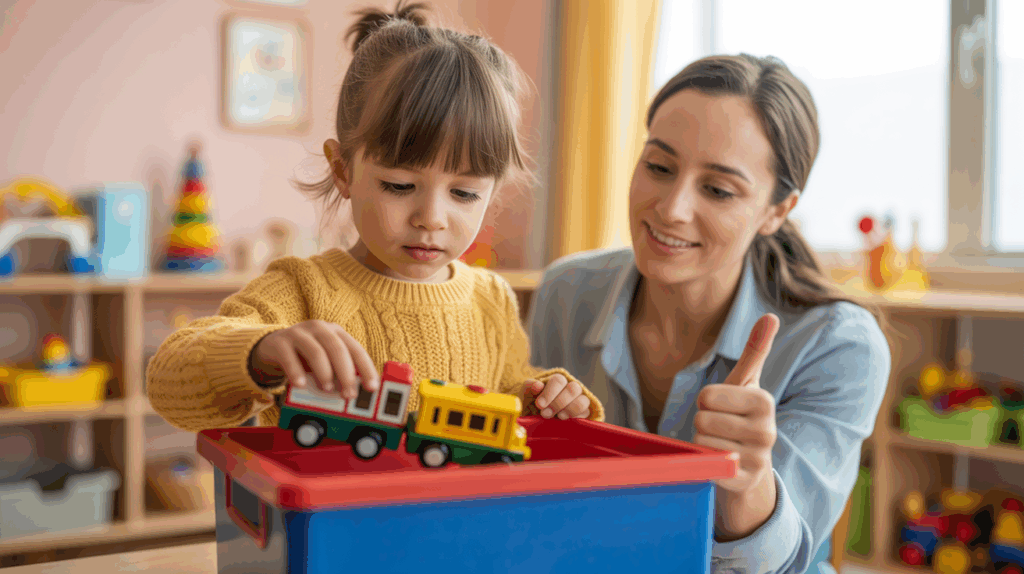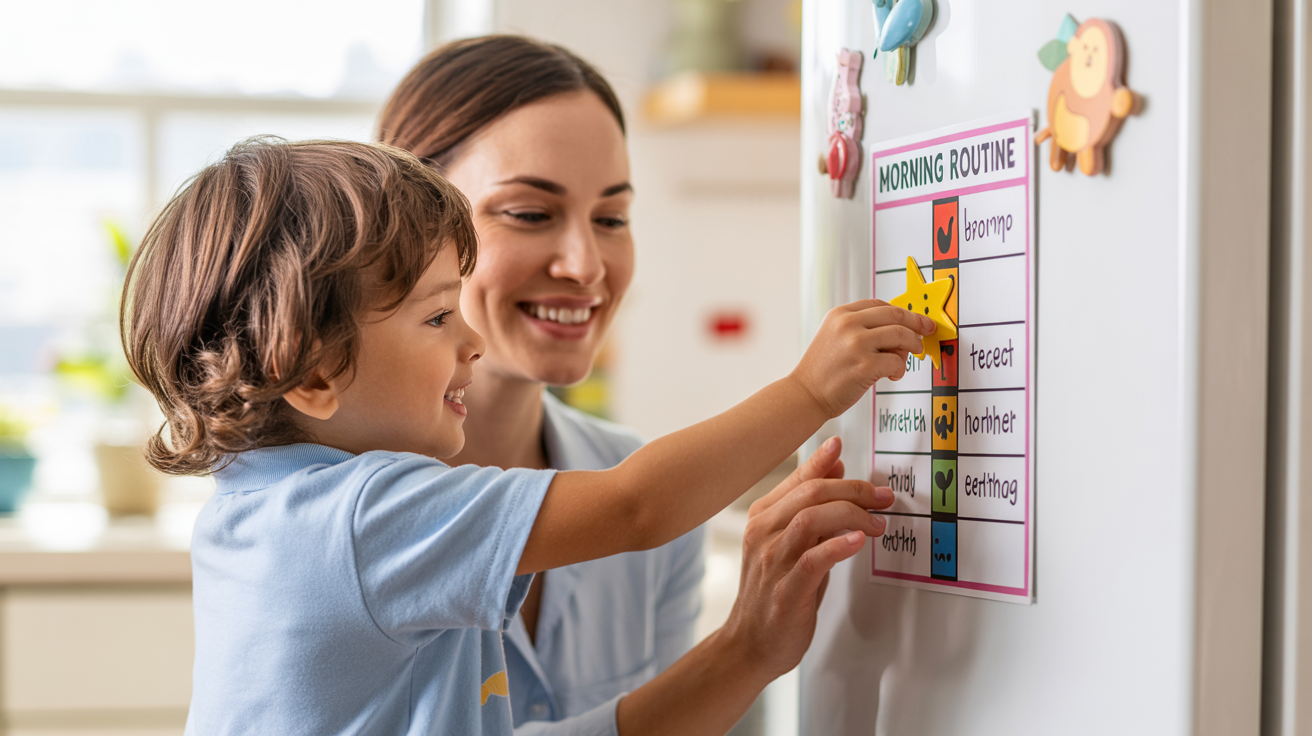Routine goals are a key part of effective ABA therapy, helping children with autism and developmental delays build skills within the structure of everyday life. At VBA California, we believe that some of the most powerful learning happens in the context of familiar routines—whether it’s getting ready in the morning, eating a meal, or preparing for bed. By targeting these moments, we help children apply ABA strategies in natural settings, improving communication, independence, and behavior in ways that truly stick.
What Are Routine Goals?
Routine goals refer to specific skill targets that are practiced during predictable daily activities. Rather than isolating therapy to a table or clinic, these goals focus on real-life moments that children experience every day. Whether it’s brushing teeth, packing a backpack, or following bedtime steps, routine-based learning turns those moments into valuable opportunities for growth.
At VBA California, our Board Certified Behavior Analysts (BCBAs) work closely with families to create individualized ABA programs that embed routine goals into home and school life. These goals are chosen based on each child’s developmental level and current needs and are continuously adjusted to match their progress.
Why Routine Goals Matter
There are several key reasons why routine goals are essential in ABA therapy:
- Natural Learning Opportunities – Children are more likely to retain and use skills when they’re taught in real-world settings like home, school, and the community.
- Skill Generalization – Practicing skills during daily routines helps children apply what they learn across different people, places, and situations.
- Parental Involvement – Parents are an active part of implementing and reinforcing routine goals, which increases consistency and success.
- Behavior Management – By targeting routines where problem behaviors commonly occur, therapists can replace those behaviors with positive, functional alternatives.
Examples of Routine Goals in ABA Therapy

Routine goals vary based on age, developmental level, and family structure, but here are some common examples:
- Morning Routine: Dressing independently, following a checklist for hygiene, asking for help appropriately.
- Mealtime: Using utensils, requesting food or drink, staying seated, cleaning up afterward.
- Transitioning Between Activities: Responding to verbal prompts, using a schedule, following multi-step directions.
- Bedtime: Brushing teeth, putting on pajamas, choosing a book, turning off the lights independently.
By teaching these skills in context, children begin to gain confidence and independence in their daily lives—leading to meaningful long-term progress.
How VBA California Supports Routine-Based Learning
At VBA California, we take a collaborative, hands-on approach to routine goals. Our team includes experienced BCBAs, Registered Behavior Technicians (RBTs), and interventionists who work together to support families every step of the way. Here’s how we integrate routine-based learning into therapy:
- Home-Based ABA Services – Our therapists work directly in the child’s home environment, embedding goals into real routines that occur daily.
- Parent Coaching – We provide training and support so that caregivers can confidently carry out routine-based interventions between therapy sessions.
- Data-Driven Adjustments – Routine goals are monitored through continuous data collection, allowing our team to make timely updates that reflect the child’s progress.
Empowering Families Through Daily Routines
Routine goals not only help children build functional skills—they also empower families. When routines run more smoothly, stress decreases and family quality of life improves. Parents gain a deeper understanding of ABA strategies and feel more confident in supporting their child’s learning throughout the day.
Whether it’s encouraging independence in self-care or teaching communication during shared activities, routine-based learning ensures that the child’s progress is meaningful, measurable, and directly relevant to everyday life.
Who Benefits from Routine Goals?
Routine goals are especially beneficial for:
- Young children developing early daily living skills
- Minimally verbal children building communication through repetition
- Children who struggle with transitions or behavior management
- Families seeking practical, home-based ABA therapy solutions
Because routine goals can be highly individualized, they are adaptable across developmental stages and learning needs—making them a core part of comprehensive ABA therapy programs at VBA California.
Getting Started with ABA and Routine Goals
If your child is just beginning ABA therapy or if you’re looking to build more consistency into their day-to-day life, routine goals are an excellent place to start. At VBA California, we begin with a comprehensive assessment to understand your child’s current skills and the structure of your daily routines. From there, we work collaboratively to build a treatment plan that supports learning throughout the day.
- Step 1: Intake and insurance support
- Step 2: Initial assessment by a BCBA
- Step 3: Goal development, including daily routines and family priorities
- Step 4: Therapy implementation and ongoing parent collaboration
Contact Us Today
Are you ready to see how routine goals can transform your child’s daily life? Contact us today to learn more about our in-home ABA therapy services and how we use structured routines to support real, lasting growth for children and families across California.


